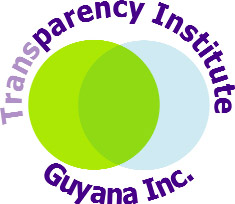(A column of Transparency Institute Guyana Inc)
In the part 4 we described how even before Transparency Institute Guyana Inc (TIGI) began to write on the petroleum contract and advocated for insurance to be included in local content (we had not then made representation for oil spill protection as we began to make recently) Berbice fishermen had demanded oil spill insurance. We pointed out that they seemed to have accurately predicted in that meeting, which is now some five years ago, that there would be a decline in the fish catch because of the petroleum-related activities in Guyana’s waters.
We don’t know whether Prof CYT would include them in the “noise and nonsense brigade.” If he were to choose to do so he would have a problem. Their prediction, however they arrived at it, was accurate and simply stated. His predictions are a lot more difficult to understand, being of necessity, done in language too complex at times for the average reader. So he would be unwise to include them in such a classification. And if he does not, he would have to justify calling other people names that he does not call them.
To end this series that is addressed not only to Dr CYT’s criticism, but to the orchestrated attempt to delegitimize well-meaning civil society voices, we will now proceed to a spectacular battle between civil society and a government. This is a government of one of the most respected countries in the world, whose engineers are famous for their technical competence in matters of sea defence. We are referring, of course, to the Dutch government.
What would have been likely deemed “noise and nonsense” forced an unwilling Dutch government to review its plans. Those plans had already resulted in contracts being signed. But so enormous was the pressure of the “noise and nonsense brigade” that the government had to pay attention and cancel those contracts to address the concerns.
This is what happened. The Dutch had been working according to a plan developed since the 1950’s. The last stage of this plan to close off the “Eastern Scheldt” involved the erection of a dam which, of course, would be a fixed structure. The more the society, led by environmentalists, examined the plans, the more they realized what it would mean for the fishing industry. It would destroy the ecosystem that supported that industry.
Their education of the public developed awareness as to what was at stake. That was how public pressure built up. The government was forced to abandon the original plans in favour of an innovative solution. New studies were done which concluded that it was possible to protect Zeeland whilst maintaining the existing habitat, and a storm surge barrier with movable gates was then chosen as the preferred solution.
Note well that the government and the environmentalists did not know whether the new studies would result in a better alternative. What was at stake was enough to justify a halt to the original plans. Had there been no better alternative there would have undoubtedly been those eager to classify the intervention as “noise and nonsense.” But the two sides would have been satisfied that the nation could not be protected from the sea without sacrificing the ecosystem. And what a huge ecosystem it was.
“The Eastern Scheldt was, and is, a unique natural habitat. The clean seawater provides a rich source of food for wildlife of all kinds. Fish use the inlet as a breeding ground and oysters and mussels are farmed there. The inlet’s mud flats, salt marshes and sandbanks provide a habitat for many species of birds. If the Eastern Scheldt had been closed off by a dam, the seawater flora and fauna would have disappeared, and with it, sea fishing and mussel and oyster farming would no longer have been possible.” file:///C:/Users/Frederick/Downloads/Brochure_Eastern_Scheldt_storm_surge_barrier.pdf.pdf
What is it that makes the politicians of a world power like the Netherlands listen to their people’s concerns? What is it about Guyana that makes our politicians, aided and abetted by an academic who should be on the side of the people, turn an arrogantly deaf ear to people with the best intentions?
It could not be their stellar performance. Anand Goolsarran has just published a litany of projects for which they are deserving of a failing grade. There was another academic whose words we can borrow to get a clue. He was Dr. Eric Williams, prime minister of Trinidad and Tobago. He left some habits and some vignettes behind as a legacy in the Caribbean. When he did not want to hear what was being said he simply pulled out his hearing aid. Our politicians are cruder. They block their ears and shout down the unwelcome advice. Eric said “We got oil and the oil don’t spoil.” He was wrong. He had no way of knowing, but the oil does spoil – us.
It is the only explanation for Dr. CYT being a detractor, instead of on the same side of civil society, and calling us names.
We will end this series by making a fairy tale reference- after all, we have people who tell us we will be getting fairy tale riches from oil. And it may well be. But our pied piper politics has a discordant tune in the background. We detect a powerful conductor and he has a Texan accent.
Sense and nonsense are identical twins, and they love to dress alike. We hope that in this series we have helped readers to distinguish one from the other.
End of Series
